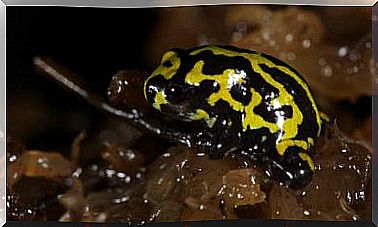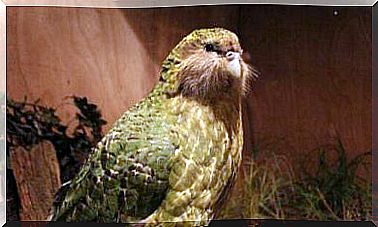Do Animals Have A Sense Of Humor?

You may have wondered if animals have a sense of humor. Even today, however, we do not fully know the emotional universe of the animal world.
Trying to compare complex human emotions with those of other animals can ultimately lead us to think that other living beings do not have the same emotional capacity.
This is due to our anthropocentric view of the world and the comparison to which we subject our feelings and those of animals. We cannot expect animals to have a sense of humor comparable to that of a human being, since our abstract thinking and the complexity of our language serve for that.
However, there is scientific evidence and observations that show us that animals have complex feelings and emotions. In fact, they possess the whole complex of hormones and neurotransmitters from which emotions arise.
Humor and feelings
A sense of humor is the ability of human beings to express or perceive the comic element. In other words, the ability to transform emotionally difficult situations so as not to be overwhelmed.
When something amuses us, mechanisms are activated in our brain that make us feel good. This also occurs in other animals, especially those with a developed brain.
Play and similar behaviors, more present in young individuals, are part of what we might call a sense of humor in animals. These are clashes or struggles in a non-aggressive climate that foment the bond between the individuals of a social group, as happens with humans.

The laughter of the dolphins
A YouTube video, which has had over 21 million views, shows a girl doing wheels and other exercises in front of the glass of a dolphin pool. One of them seems enraptured by the girl’s performance and shows grimaces that we could relate to a laugh. Can this prove that dolphins have a sense of humor?
A group of scientists from the University of Linköping, Sweden, found that some dolphins made very particular sounds when they were involved in non-aggressive fights, that is, when they appeared to be playing.
Later, they conducted an experiment whose results confirmed this hypothesis. When young and sub-adult specimens play or carry out these non-aggressive fights, they emit a burst of ultrasonic pulses, with a final whistle, well recognizable and that do not occur in fights between adults.
The researchers came to the conclusion that dolphins emit this sound, which we could define as laughter, to communicate that the situation is harmless, that is, that it is just a game.
A sense of humor in rats
In the late 1990s, scientist Panksepp and his colleagues at the University of Washington devoted themselves to studying cheerfulness in rats and to what extent they demonstrate it.
They discovered that rats emit sounds at 50 kHz (ultrasounds that are imperceptible to humans, but audible to machines) during copulation.
At the same time, they noticed that areas associated with cheerfulness, well-being and pleasure are activated in the rat’s brain. They also observed that the rats laughed when they played with each other.
Likewise, after developing a certain bond with the animal to trust him, if the researcher tickled him, the rat laughed.

More recent research shows that this tickle, when the rat is in a good mood, activates areas of the brain related to pleasure ; the same occurs in humans. This happens, however, only if the rat trusts the person in question.
In light of these studies and demonstrations of a sense of humor in animals, it is clear that there is still a long way to go. Despite this, we have clear evidence that animals have complex feelings on a par with humans.









